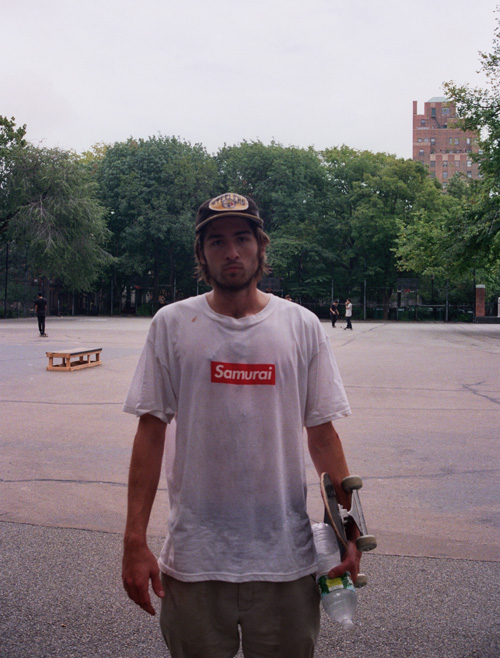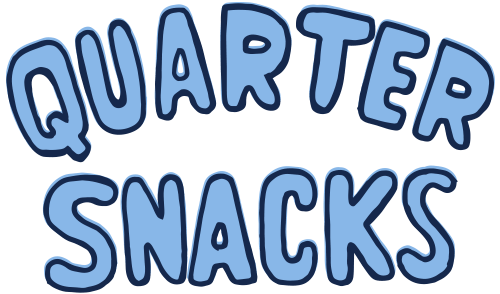
Sorry this took so long, but here’s an interview with the always talkative Jake Johnson. Some of the answers are long, and took a different turn from the questions, but you can treat it as an open-ended thing. Not having to worry about space is one of the good things about the internet. Read it in two sittings if you have to. Enjoy.
Just to backtrack a little bit…Everyone seems to move to L.A. or New York, why did you move to Pittsburgh?
After I messed my knee up, I just decided to get away for the recovery. In New York, you’re paying for your ability to move everywhere fast, and share space with tons of people. It just wasn’t worth it for me. My ex-girlfriend and my brother lived in Pittsburgh. I was seeing doctors there, I just felt comfortable moving there and hibernating. I think I work better in New York, but there’s a lot of value in having more space and you save a lot of money living out there. I don’t want to be a victim of rent forever.
You’re trying to buy a house?
Eventually, but my rent is really cheap as it is.
Is that where you’d most likely settle at?
I don’t know yet. I just signed another one-year lease there. I actually have a pretty sick skate house out there now, because I live with two young kids, Justin and Zach Funk. We have a mini ramp in our backyard, a whole house to ourselves, and central air.
You think you’re going to stay in Pittsburgh after this next lease runs out?
I do need to move back to New York, but I’m going to be traveling so much this next year. Right now, I’m paying $400 a month to have a whole house and a mini ramp.
Since you’ve been posted out there, do you want to talk about the scene they have in Pittsburgh a little bit? It seems like New York, Philly, etc. are nowhere near as rough as Pittsburgh is spot-wise. How was it adjusting out there?
It’s really small, I adjusted well. There’s One-Up Skateshop, and a crew of guys that skate for that shop. It’s like a dozen core skaters of all ages. There aren’t lot of people out there that are skating for any image, and most of the skaters out there are from very rural areas around the city. They’re just resourceful, country-type people. In New York, there’s a “scene” to everything, and you’ll bump into skaters everywhere. Being a skater puts you into a scene, like a network, night clubs, this and that. Out there, there’s nothing to skating except gnarly rugged street spots and a small skate shop. They drink just as much as people do here [in New York] or anywhere else, but there’s no scene to it. I relate to people from those sorts of areas real well.
Is it in any way reminiscent of State College?
A little bit. State College is a big sports town. Pittsburgh is also a blue collar, sports-crazy sort of town. Not that I loved State College, I moved out of there for a reason, but I do relate to that sort of country mentality. Just making the most of what you have, being able to get by with nothing, and not acting like it’s cool. Here, hipsters will try to get by and do that, like “Dollar slice this,” and they have this image that comes with living in New York.
There’s nothing cool about dollar slices.
In Pittsburgh, there’s none of that. You’d be insulted for being a scrub down there. Accepted, but insulted nonetheless. Everyone’s up front and forward with each other. In New York, you bump into a lot of people that you may know, but you wouldn’t actually call on them if you needed help. Down there, they don’t have as many skaters, and you don’t have that collective energy, which is good about New York. But there are less people and I feel like you get a deeper connection with them. The spots are cool, and people don’t really complain as much. It’s a lot of guys that just work blue collar jobs, there aren’t any DJs or anything.
So, if there are no DJs, what kind of jobs do skaters work out there?
Nick Panza sets up office spaces, like building walls and roofing. There are dudes who work at bars and shit. Our friends Chris and Henry Panza started their own eco-friendly print shop where they make tee shirts. People are just getting by, but they still put a lot of time towards skating, and are passionate about it.
Pittsburgh’s been off the map so long that people skate there not caring if they’re going to get any coverage for it. Nobody goes to Pittsburgh on tours. I think it’s because you really have to seek out spots there. Geographically, it’s bizarre, all the roads feel like they lead nowhere. There’s no grid. I’ve lived there for over a year, and I still get lost every time I drive. That’s half the fun though, to find spots. I haven’t been able to skate it as much as I’ve wanted to. As soon as my leg got better, I had to start traveling. I want to film a part in Pittsburgh. It would really surprise people with the spots and the way it looks. It’s like an east coast San Francisco. It’s just tough, because you have to film HD now for pretty much anything sponsored by a major company.
Alien is HD now?
Yeah. So if I’m doing my job, I have to film in HD. I can’t really stay in a local town filming with local guys, having a small community feel, kinda what skating used to be. What made it so potent back then was all small cliques of people innovating on their own turf and then premiering that to the world. It’s reassuring that a small community like Pittsburgh is still really strong and there are great local videos coming out. Just as much as kids go on the internet to check the latest Berrics clip, they look for local videos too. Kids in Pittsburgh know all the local New York videos, like Goin’ Ham and everything.
Yeah, definitely. Like a year ago, we walked into that shop Humidity in New Orleans. Miles looks at the TV, and goes “I like how Luke [Malaney] is on the screen right now.” And they were playing the Green Diamond video.
Exactly. And it’s not even in the States, it’s also in other countries. They’re having their own little revolution now.
Skateboarding seems to have changed quite a lot in just a few short years since you entered the industry. As you’ve been getting back into the swing of things, how would you define the direction it has taken?
There are so many more people with their hand in sponsoring things, trying to get more exposure for skateboarding. The bottom line in skateboarding is that there was a message, whether we admitted it in the first few generations of skaters or not, that came from a bunch of rebellious young kids being creative and ambitious, trying to show an unfiltered perspective on a trife society that was holding us back from being creative and ambitious. They were in garages, building boards themselves and skating anything in their path. That’s what brought so much attraction to skateboarding in the first place. The message had to do with breaking down societal standards, and destroying personal property. Now, it has almost turned against us, and that same message has been filtered out because so many people are attracted to it, and we’re marketing it all to them. It’s like 70% of the people you’re marketing skateboarding to aren’t actually skaters, so they don’t get the message at all, and a lot of the skaters now don’t understand either because they picked up skating with that filtered down message in tact. I don’t think skateboarding is for everyone, I liked the era when you’d had slam sections to show people that. I think it’s for everyone to appreciate, but it shouldn’t be marketed to everybody as a sport that anybody could do.
What about on a more personal level?
I’m just being pressured to release coverage. I was more stressed coming out of my injury. I’ve seen skaters like James Craig where they have one bad knee injury and kind of disappear. For me, it was a pretty minor injury. It taught me not to even pay attention to the other stuff. It’s almost easier to be original when there’s a bunch of bullshit everywhere and maneuver your way through it. I feel like I have gotten a lot for doing a little within skating, there are a lot of guys that skate and put out way more stuff. I always appreciated people like Gino, Heath and Arto, who have only had a few major video parts, but they were the best they could possibly be.
So your approach is basically to maximize on only putting out your best?
I try to, but it’s kind of a gift and a curse. In my Mind Field part, I was focussed on filming all these single tricks, but a lot of them took me three or four times of going back. I couldn’t film lines because I’d always try lines that were too hard, so I kinda made a part that was a lot of single tricks, and that’s not exactly how I wanted it to be. The injury has helped me gain a lot of patience with filming, especially with lines.
Well, that’s a good thing.
You have to re-evaluate your weight distribution for every trick [after you get injured.] You have to do it over again as you start to get more strength. You have to figure out the physics and timing of every trick all over again. I had a really hard time with nollie tricks. When I was younger, nollie was my go-to, but after I shot up and got taller, I lost a lot of my nollie tricks. Then I moved to New York and started doing wallies and lost all my tech tricks.
Do you have any tips for people coming off an injury? What’s the right mindset to ease back into skating?
You should ride a bicycle as much as you can. It’s good because you can go look for spots and still feel like you’re out having a skate experience. Drink a lot of protein shakes. As far as the actual act of skating, you have to respect your boundaries. There’s a fine line between pushing yourself too hard and not doing enough. You have to be risking yourself a tiny bit. At some point you have to cross the line with injuries and believe you’ll be alright. Like, tell your body, “I need to use this,” so you can build yourself back to 100%. Like now [as I get older] when the rain comes, it actually starts hurting. I’m probably going to have arthritis because of that.
I feel like skaters are screwed in general when it comes to all that. It’s insane that dudes like Lance Mountain and Steve Caballero could still do all the shit they do at their age.
Lance Mountain has no PCL. I look up to people like him and Danny Way, even if he has had Australian surgeons re-build his shit seven times. Skaters just have to believe beyond their own ability sometimes. I think that’s the most empowering thing that skaters give themselves. On a daily basis, you’re trying to out-do yourself with things you at one point never would have thought you were capable of. That one point may have been five years ago when you first tried to learn it or a second ago — like when you first got to a spot and didn’t think you’d be able to skate it. That’s valuable for any aspect of your life, for any challenge. You know that you have the capability to achieve things that you’re afraid of in reality, whether it be starting to pay your bills and taxes or starting a small business. Skaters aren’t the most fearless people, everyone has their issues, but skating teaches you to face your fears on a daily basis.
Do you think you’d be in a different place if you were recovering for yourself versus recovering for “work?”
I probably would’ve had a faster recovery if not for skating. I would’ve just been in the gym and on my bicycle instead of taking the first opportunity I could to go back on tour. It’s pressure, but I feel like I’m lucky. I don’t have to do what a lot of people have to do. My sponsors give me a lot of freedom. For the most part, they understand that me developing a concept, message, and my style of skating is the most important thing for their company. They’re willing to do whatever it takes for me to skate my best, and they trust me that I know how to do that. A lot of companies don’t. Skaters don’t really question that, because they have to do what they got to do to get paid, be it this online clip, this Berrics clip, or whatever. Unfortunately, there are a lot of people that once didn’t have to do that and now do, that seem like they are just holding on. I don’t like to see that kind of a thing happen. I’d rather see an original mentality come out through other mediums in a skater’s life, rather than see their skating suffer from pressure within the industry.
It’s important to also have goals outside of skating. Skateboarders with the right mentality have a lot to offer the world outside of the actual act of skating.
What are some of your non-skate goals?
I want to own my own business. I’d like to help organize and build skate spots that are “community friendly” to give the public a new perspective on skateboarding and the spaces we use. I’d like to get a helicopter pilot’s license one day. I think that would be an exciting career.
Have you been flying one?
No, not yet, but I did take a discovery flight for a fixed wing airplane. It’s only $160 to fly it with an instructor for an hour. Taking off in a plane is an amazing feeling and controlling one in flight is hard to describe. If you have any interest in doing it, you should. It’s really empowering to be in control of a machine that allows you to achieve something that evolution would not.
I know you travel a lot, do you have any highlights from recent tours you’ve been on?
I’ve been doing a lot of small town tours. I’m making a VX part on my own time.
With who, Brengar?
With anybody, that’s the whole dynamic I want to portray in the part. Like, going into a small town or community and skating with a group of skaters in the way they skate. That’s what gets me psyched. I think it has so much more value. That’s why I get so down on the Berrics and those sorts of websites, because young skaters should be figuring their own towns and areas. They shouldn’t be driven to go to California and skate a skatepark, not to meet this pro or that pro. They should be trying to meet people and expand their experience of their own environment and connections with each other. I started networking when I was fourteen at Woodward, when I met out-of-town skate friends and we talked on instant messenger. Eventually, I would visit them in New York, and make the decision to move there. That’s kind of a patent of our generation, we network very well, and I think there needs to be more of that. Using the internet to get yourself somewhere, not considering the internet a place itself. I’ve been going to all these small towns like Kingsport, Tennessee and Ashville, North Carolina. I also went out to Detroit and Cleveland.
How was Detroit?
It was amazing. The spots look like either Cold War Russia or brand new Barcelona spots. They’re going to tear down all the vacant buildings and renew a lot of the city. It might become a hub for young people, but it will definitely take a while. It’s been dilapidated for so long that it’s kind of due for a rebirth. It’s cheap and they have a sick local farming industry. I went out there with Jerry Mraz and he showed us all the stuff they have. I’m trying to keep up with as much local travel as I can. Even in a video part, you’ll have the footage from all those small places and people will be able to see the story you’re trying to tell. It’s not about stats or consistency. That’s what Street League and these things are promoting. It should be about a connection with people. Putting people behind interview tables and having after-contest questioning takes away from the message skating had in the first place.
As you’ve been getting back into skating, have there been any videos, parts, or skaters that have helped you get inspired to go skate more?
I’ve been inspired by all the local videos I see. The Push video from Ashville, North Carolina, and Fuck Yinz 2. I’ve been keeping up with the videos coming out of New York, like the kids out in Queens and The Bronx, and those kids who did the Goin’ Ham video. I like seeing those kids because they’re finding spots in New York that you’ve never seen at a time when everyone’s coming into New York to skate the same shit. I wish there was a way for those to be promoted a bit more, it’s hard to get ahold of physical copies of a lot of them. But I guess that’s what makes them more special. They mean a lot to those communities. A kid can develop a style of skating or a bunch of footage in a community and do as much as you can. People like Austin [Kanfoush] do all they can in their city and people take notice. People act like they can’t do it here or they can’t do it there. Now that we’re on the internet, everyone gets to see it. Local skaters start and then pros start going there. Pros are going to start going to Minneapolis and Pittsburgh more. You have the power to create your own story about where you’re from with your skating.
What do you think will be the result of all these neglected areas receiving more exposure through the internet?
Someone once told me, “If you’re good enough, there’s room for you in any industry.” That’s what’s good about our generation, for the most part we know we can rise to the top with hard work, even if its outside of a standard educational structure. In an industry where there’s a lot of gross skating going on, I think we’re going to start seeing a lot more original parts coming out of these small areas. Skating will get deeper into our culture, because even as kids get older and can’t do it anymore and quit, they’ll still support the ideas that come out of skating. I just hope more kids recognize what skating’s about and appreciate its history, so that that message stays meaningful and comes around full circle to benefit skateboarding. Like, I organize my past based on skate videos, based on the emotions I got from them, the ideas they gave me. I don’t know what’s going to happen now that videos are online, and there’s so much to choose from. I hope there’s a resurgence of hard, physical, collectable videos, but more importantly a resurgence of uncut opinions and ideas within skating.
It shouldn’t be “Oh, this is what the kids want, they are all on the internet, they need to be entertained or else we will lose them.” No, the kids take what you give them, they look up to our message and it becomes a part of them. When I was young, whatever I saw, that’s what I was hyped on, thats what I followed. The internet age has given us the opportunity to see a broader view of skateboarding and society. We see it at a faster pace, and reach even more people with our message, but we need to be aware of what it is. Skateboarders have always prided themselves on their ability to see through stupidity and ignorance in society and achieve our goals despite it. There was a time when most skaters didn’t make good money, weren’t supported by corporations, weren’t television personalities, or world renown athletes and there was no effort from society to help the community grow or promote its ideas. Now that skateboarding is popular, we have people and companies who are willing to filter money through skateboarders, but it’s up to us, as individuals and as a community to take control of that opportunity. We need to support skateboarding at its core, so that kids and newcomers understand the meaning behind skateboarding. Otherwise they will not make healthy decisions for the community and we will eventually collapse under the mounting pressure from outside sources who are only looking for a return on their investment.
Related: The Jake Johnson Files – Photo Edition, Pittsburgh homies over at FuckYinz.Tumblr.com, “Long lost footage,” lost box session, Short Ends throwaways.
Have a good weekend.






Did not expect that….
Damn it’s so good to hear a sick skater say that kind of shit.
Real Talk.
Mr. Johnson speaks truth, the demise of skateboarding has been greatly exaggerated. There are plenty of small pockets of kids who are still in it for the love in random small towns all over the place that aren’t filled with snickering trust-fundees in $100 shirts drinking 40oz of Old English.
“There’s nothing cool about dollar slices.”
^^^
HOW DARE YOU SIR!!!!!!!11111
quality interview, totally agree with honestly on the snickering trust a farians taking up hard working skaters space and air…
Best interview I’ve read it a while… Thanks
Now this is what makes a good skateboarder. He doesn’t just skate amazing, he tries to say something with his skateboarding. Hard to find meaningful skateboarders today, but Jake Johnson certainly is one, especially after releasing this video. I wish that more kids would read this stuff, understand it and would give a fuck.
It’s just so easy to influence people with videos, people are lazy and rather watch The Berrics than read an inspiring and interesting interview like this!
yeah blah blah freakin blah jakey put some footage out and shut the fuck up no one wants to hear you whine about skateboarding and where its headed be a good monkey puppet and put out some new footage to entertain us thats all your good for whore
Another great interview by QS!,
I’ve dug this dudes skating since his part in Short Ends came out, but now he is really up there on the list of favorites.
thanks, justin <3
YO where the fuck is DANNY JOHNSONS FOOTY, thats all i wanna know
Hell of an interviw QS and Jake, REAL TALK! Mad props from Argentina!
It is so refreshing to actually feel the need to finish an entire interview.
Jake is an insightful, opinionated, and well spoken skateboarder.
I don’t have the stomach to even read past the first few questions in an interview of your average teenage moron from Southern California. I don’t know when it became cool to portray yourself as stoned into stupidity, but Jake is a welcome break from a sad trend.
Really looking forward to seeing the footage from his trips to the small towns.
Jake always keeps shit real
long interviews with jake can be longerererer and i will be even happierererer. a meal for a quarter– thank you !
big up to jake johnson for the best interview of 2011. also fuck hd. cant wait to see the vx part
@ Big Cookie T, you said it perfect
Shut up Jake. Skateboarding politics are fucking depressing. Way to join the club with Oyola
Nice.
sickest interview, ever
whoa.. super good.
jake is super rad. got to hang out with him here in asheville one night. a few weeks ago. he is super down to earth dude. im psyched that he’s going to be making regular stops here in my hometown.
Sick! I love that his philosophy is critical of skating’s problems but still keeps things super positive.
Spot on throughout except for this:
“I don’t think skateboarding is for everyone, I liked the era when you’d had slam sections to show people that. I think it’s for everyone to appreciate, but it shouldn’t be marketed to everybody as a sport that anybody could do.”
I firmly believe that anyone can skate and should. Perhaps not everyone is super skilled and can make a name for themselves with it, but it’s definitely accessible for all and should be projected to the public as such.
freaking good interview, thank you! Its great to find out that someone is still carrying the torch..realness to the fullest! Big ups from a rugged small town!!
Jake’s one of the few guys today that still skates for the right reasons!
Thanks for giving such an apparently well-spoken, thoughtful skater a place to get real ideas across!! And agree or not, the point is that he can and does skate the way he wants with a purpose.
KILLS me most all main skate media is part of the machine selling graphic overload backpacks to young kids’ moms; where the most thought-provoking questions are “So how did you start skating?” and “Any shout outs to your sponsors?”
Go here:
http://chromeballincident.blogspot.com/search/label/chrome%20ball%20interview
CHAPEL HILL NC
we got spots yo…
ay yo im from right next to chapel hill nc, who wrote that shit?
REAL SHIT! TRUE WORDS!
I’m glad he broke his manifesto down. I haven’t heard a dude in skating be allowed to speak his mind and come through like this since pre-scientology jason lee. in the 90’s you would hang this interview on the wall, only for this very site to canonize it 20 years later. thank you for a quotable interview.
I’m glad more people, especially skaters like Jake, Alex Olson and etc are seeing how whack the Berrics can be towards skateboarding. I mean, i respect what Berra tries to do by giving people more exposure but the internet trend really is starting to kill the appreciation for skateboarding. It brings about the need for instant gratification in the industry. No one ever wants to wait anymore for videos to come out, or to see footage of certain skaters. He’s right about people’s skating suffering from over exposure and pressure from the industry. When you see too much of the same person, you learn their routine and they begin to become less and less impressive each time you watch. This interview is a breathe of fresh air, especially from a skater i looked up to when i was young.
fuck yeah, skate local spots, skate weird spots, grind the edge of your abilities, meet local people, meet weird people, jakes clips through new york are sick
but yo skateboarding is about different things to different people. im down with the way jake looks at it, as skating being about the world and people around you, but i dont think that that is the only thing that skateboading has to be about. to some its about the berrics, celebrity, technical proficiency and perfection, winning and losing, and whose to say their wrong? Sure that shit is tasteless and I wish it’d go away but to say that that isn’t what skateboarding is “really” about is a little bit pretentious I think.
“PUSH” from Asheville, NC
http://vimeo.com/32554083
richtig.